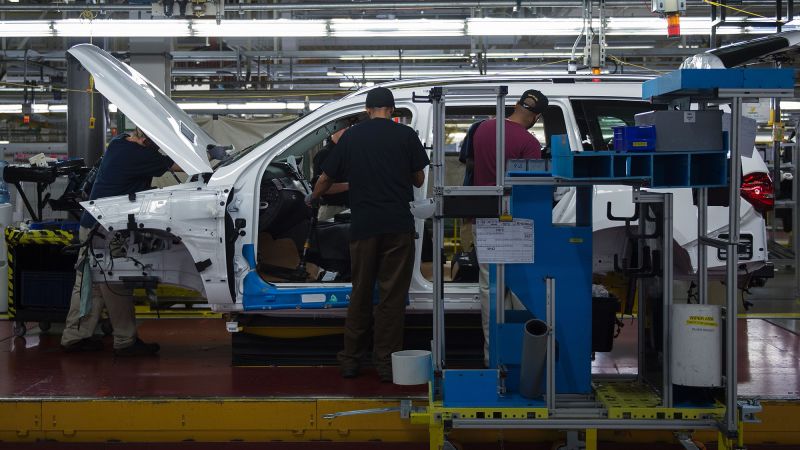
UAW reaches milestone in filing for union vote at second nonunion automaker
CNN
The United Auto Workers union’s effort to organize the American plants of foreign automakers just took major step forward as it filed for a representation election for the Mercedes plant in Alabama, the second automaker at which the union has filed for an election in the last month.
The United Auto Workers union’s effort to organize the American plants of foreign automakers just took a major step forward as the UAW filed for a representation election for the Mercedes plant in Alabama. It’s the second automaker at which the union is seeking for an election in just the last few weeks. In March, the union filed for a vote at the Volkswagen plant in Chattanooga, Tennessee. But while that VW plant has had two votes before this, the Mercedes plant has never reached the threshold of union support that resulted in an election being held. And this is also the first time that the UAW has ever had near-simultaneous votes taking place. Previous efforts to organize nonunion plants have come years apart. An election at the Mercedes plant has yet to be confirmed by the National Labor Relations Board, which oversees such votes, let alone scheduled. But the vote at the VW Chattanooga plant is set to take place from April 17 to 19. The UAW announced an effort to organize workers at 13 carmakers with American factories back in November in the wake of successful contract negotiations that ended strikes at the nation’s three unionized automakers, General Motors, Ford and Stellantis. That includes three US-based electric vehicle makers - Tesla, Rivian and Lucid - as well as eight other foreign automakers beyond VW and Mercedes - BMW, Honda, Hyundai, Mazda, Nissan, Subaru, Toyota, and Volvo. Those automakers have nearly 150,000 hourly workers at their US plants, according to estimates from the union, or roughly the same as the number of US hourly workers at GM, Ford and Stellantis. The Mercedes plant in Vance, Alabama, just outside of Tuscaloosa, has about 6,000 hourly workers, according to the company’s web site, and primarily assembles SUVs.

Travis Tanner says he first began using ChatGPT less than a year ago for support in his job as an auto mechanic and to communicate with Spanish-speaking coworkers. But these days, he and the artificial intelligence chatbot — which he now refers to as “Lumina” — have very different kinds of conversations, discussing religion, spirituality and the foundation of the universe.





















 Run 3 Space | Play Space Running Game
Run 3 Space | Play Space Running Game Traffic Jam 3D | Online Racing Game
Traffic Jam 3D | Online Racing Game Duck Hunt | Play Old Classic Game
Duck Hunt | Play Old Classic Game










